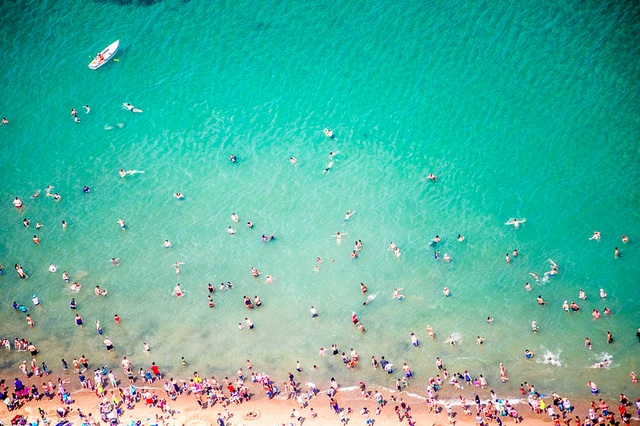Beach Season Will Truck On In Spite Of High Lake Michigan Water Levels
By Mae Rice in News on May 19, 2016 5:46PM
Beach season in Chicagoland is not in immediate danger, though water levels in Lake Michigan are nearing an all-time high. Only one of the 32 public beaches in Chicago and Evanston has undergone service changes due to high lake water levels: Evanston's dog beach, which "basically barely exists anymore," Evanston city spokesperson Martha Logan told Chicagoist.
The dog beach will be moved to a new area with "more land," Logan said, and the city hopes to have the new beach area open on May 28. (This will slightly shorten the dog beach season, a change that will be reflected in slightly docked membership fees, Logan said.)
Other than that, though, service at Evanston's five public swimming beaches and Chicago's 26 public beaches is going forward as planned—though Logan noted that some beaches are "smaller" than usual.
"None of the swimming beaches are going to be impacted at this time," Lawrence Hemingway, Evanston's Director of Parks Recreation & Community Services, told Chicagoist. "I think we're going to be okay."
"No beaches have been closed due to high lake levels," a spokesperson for the Chicago Parks Department told Chicagoist. She also said that Chicago's typical beach season, which runs from Memorial Day to Labor Day, has not been altered.
Due to unusual weather patterns in the past few years, water levels in Lake Michigan are only a foot below the lake's highest level ever, recorded at the end of the summer of 1986, the Tribune reports. The lake has risen four feet since January of 2013, when it hit a record low.
The weather that brought lake levels up includes polar vortexes in the winters of 2013 and 2014, which brought the Chicago area unusual amounts of snow and snowmelt. This past winter wasn't particularly snowy, but the weather of years before is still affecting the lake.
High lake levels can cause problems without swallowing beaches, of course. The lake, for instance, is now eroding land closer to waterfront buildings, the Tribune reports, and has the potential to cause them structural damage.
